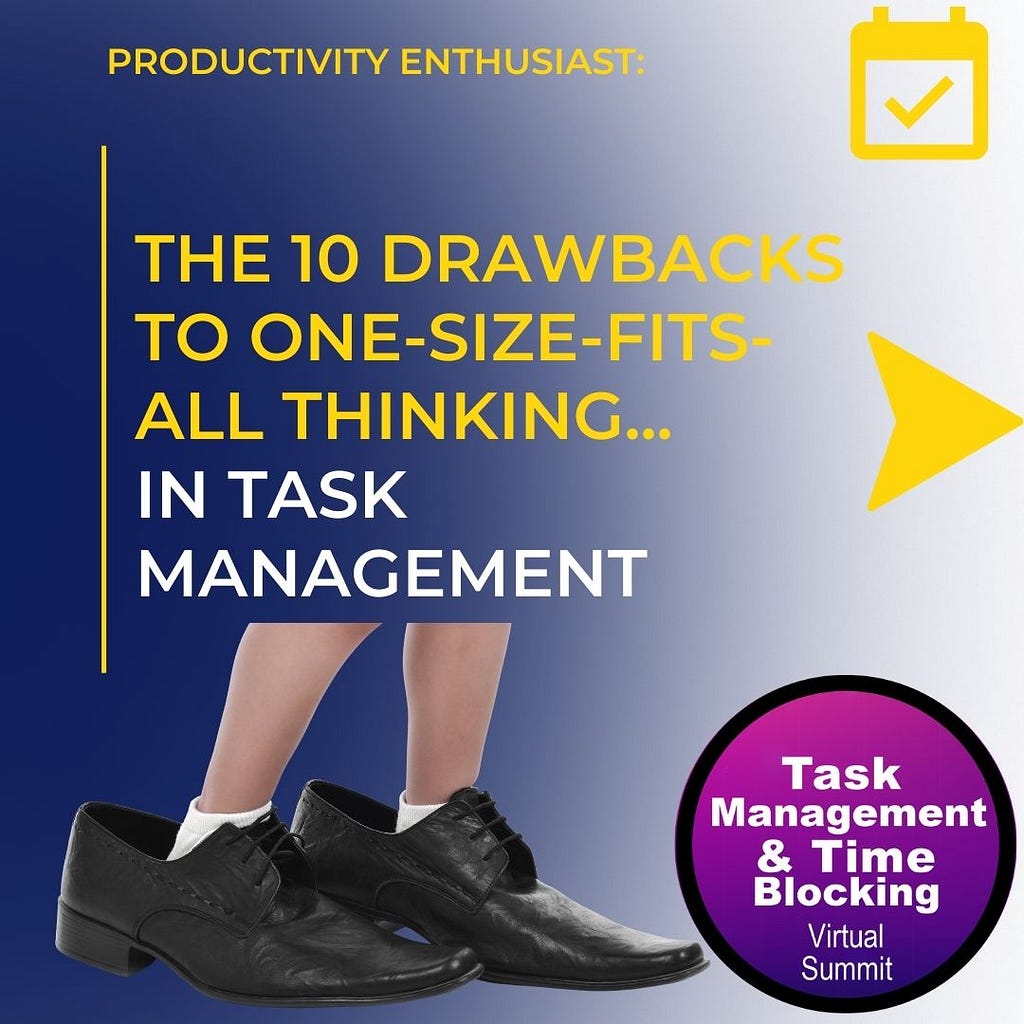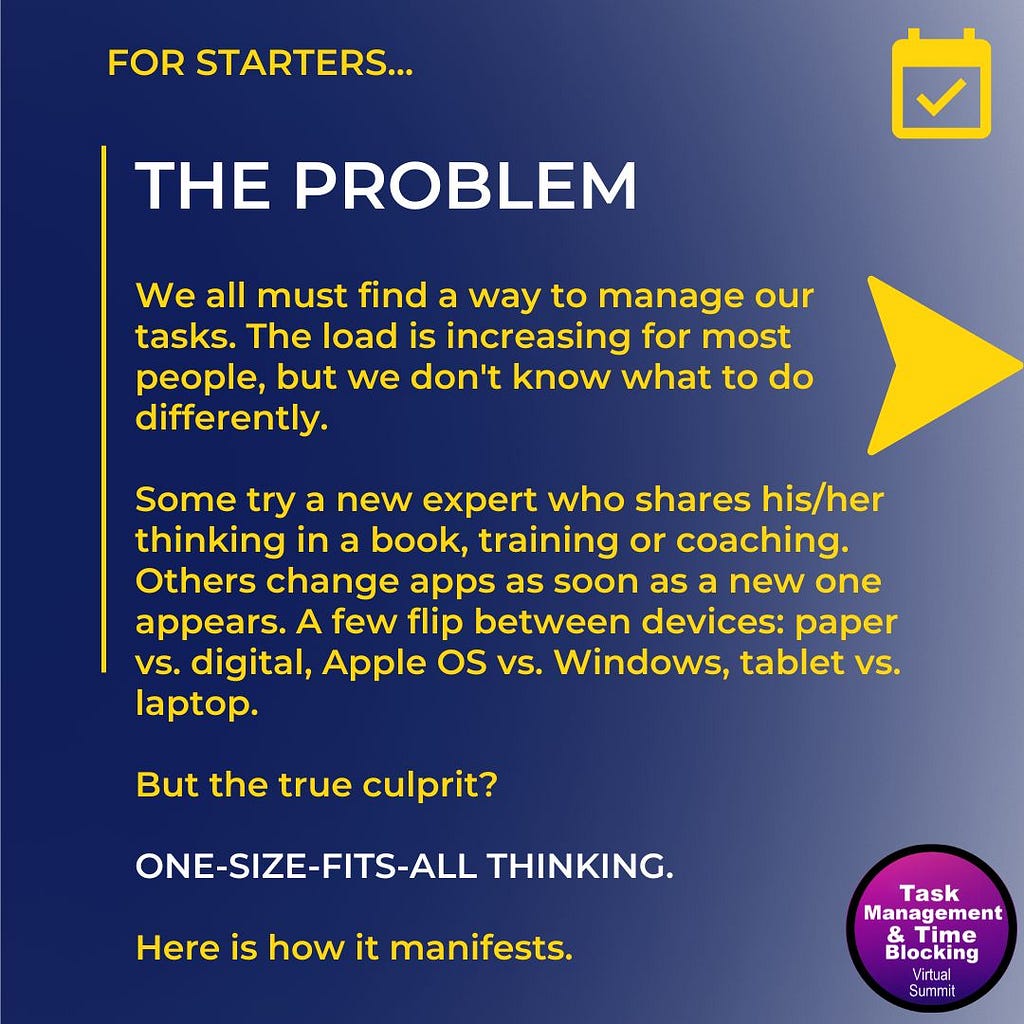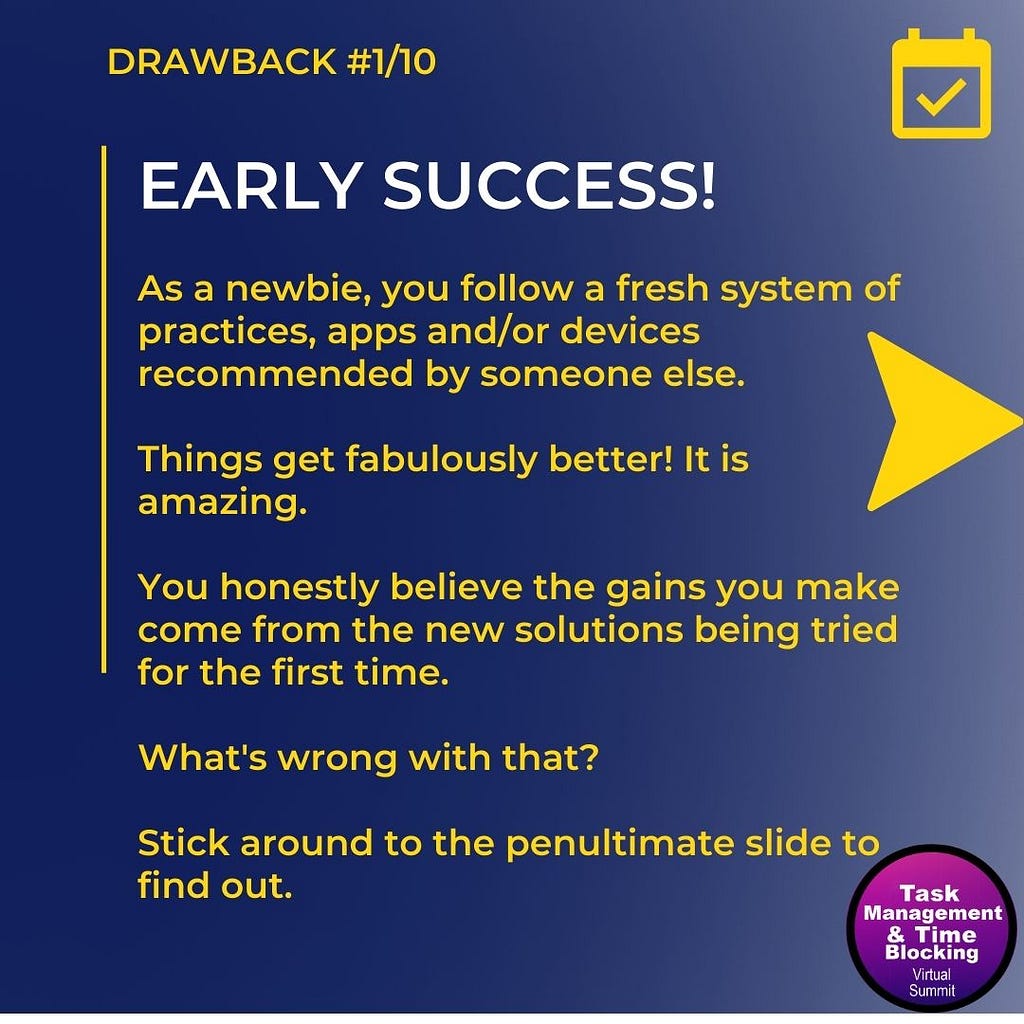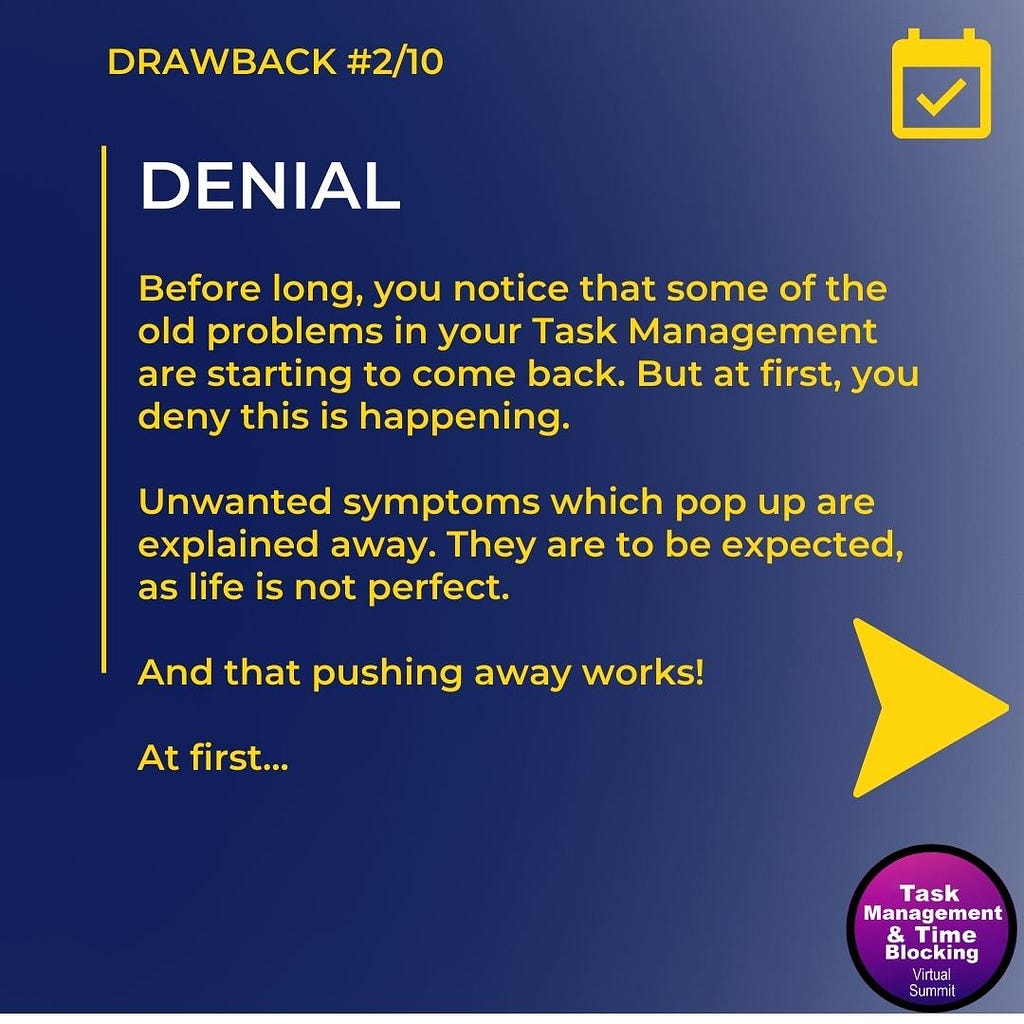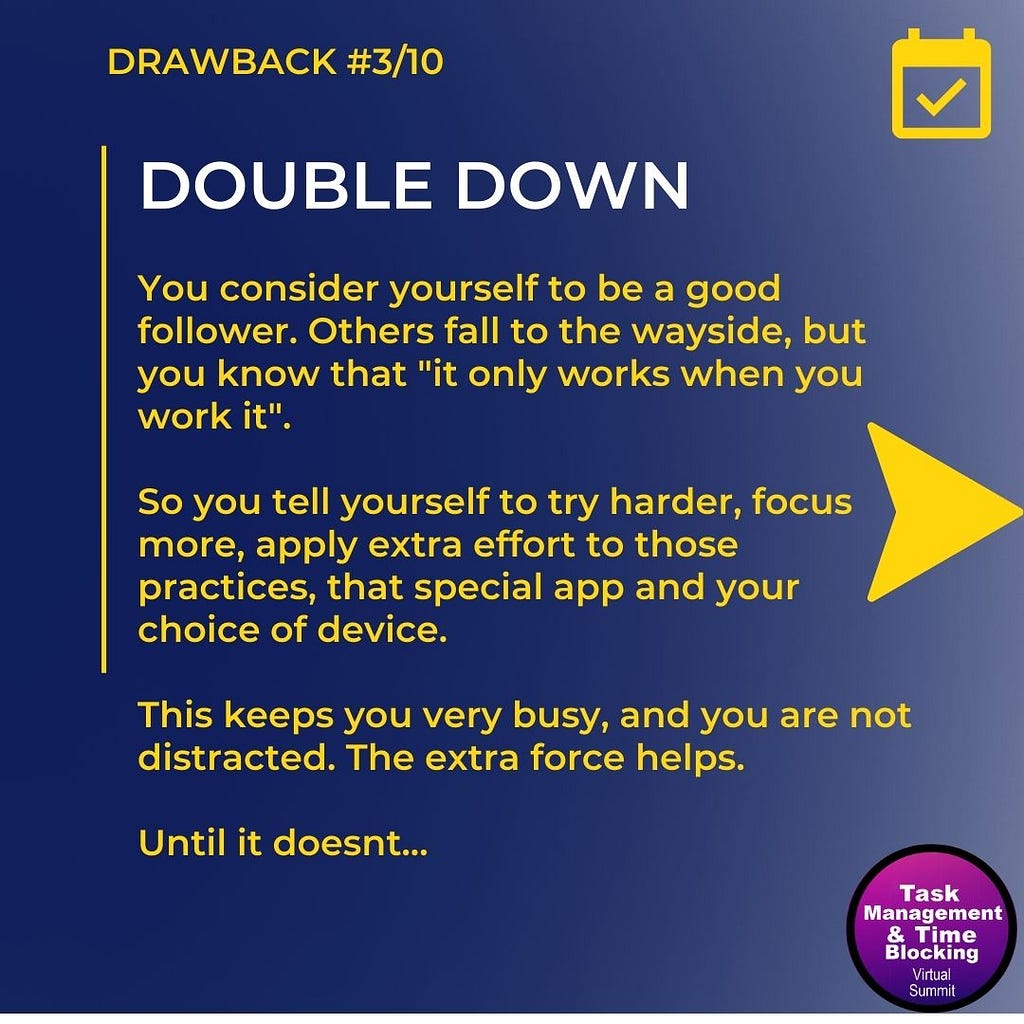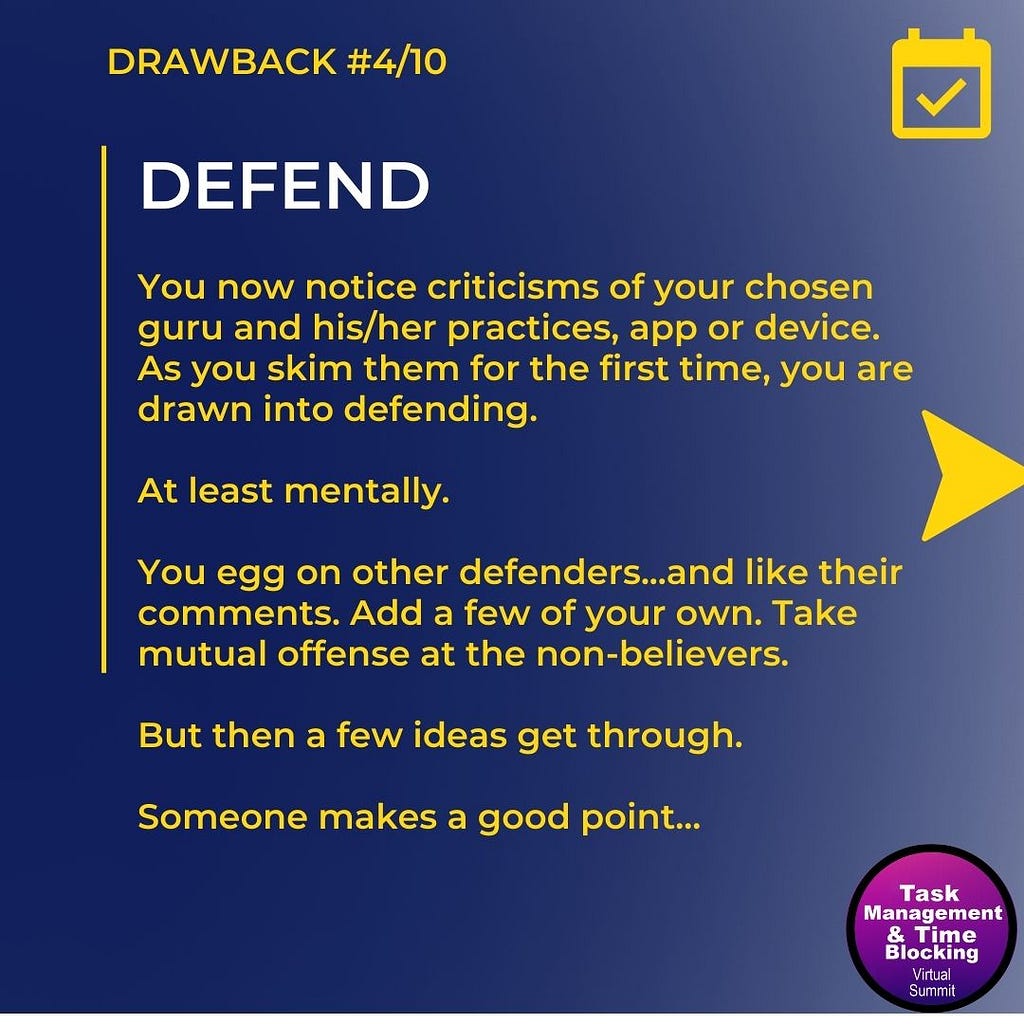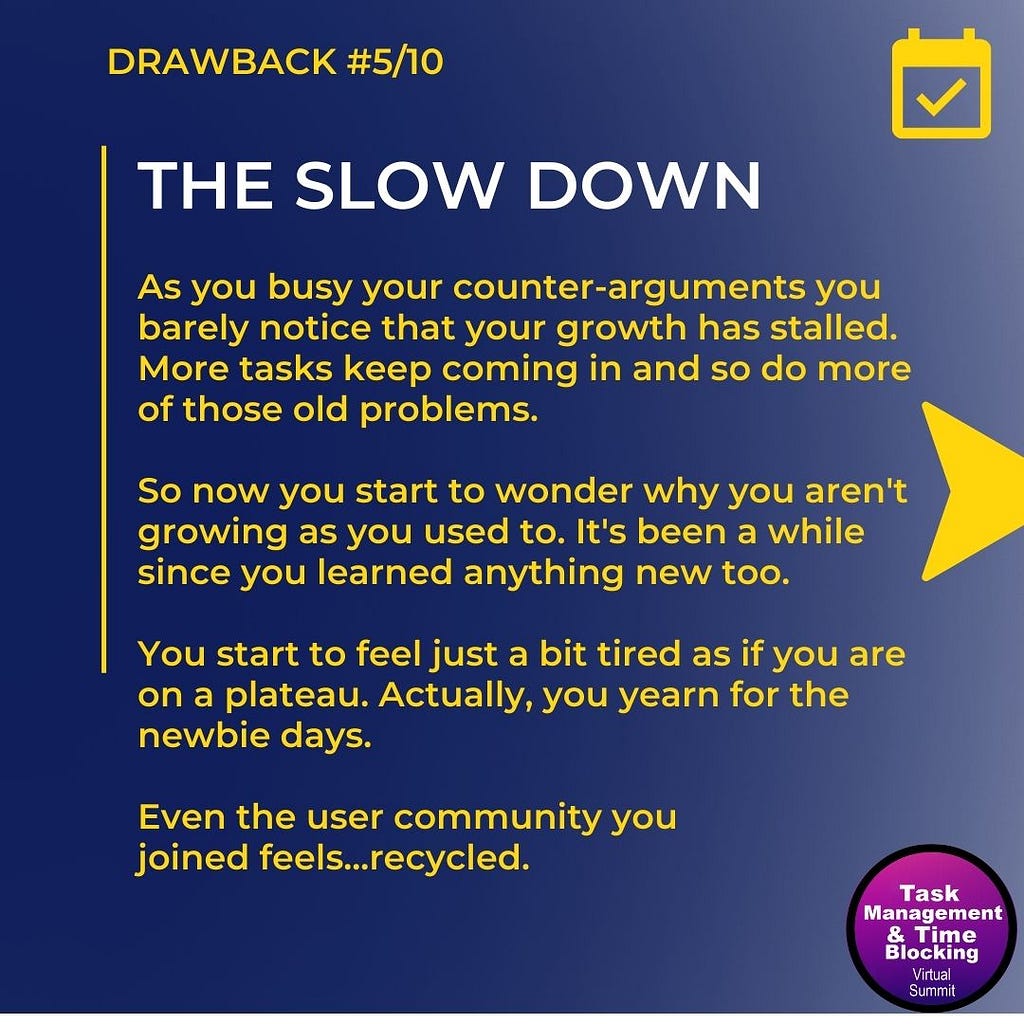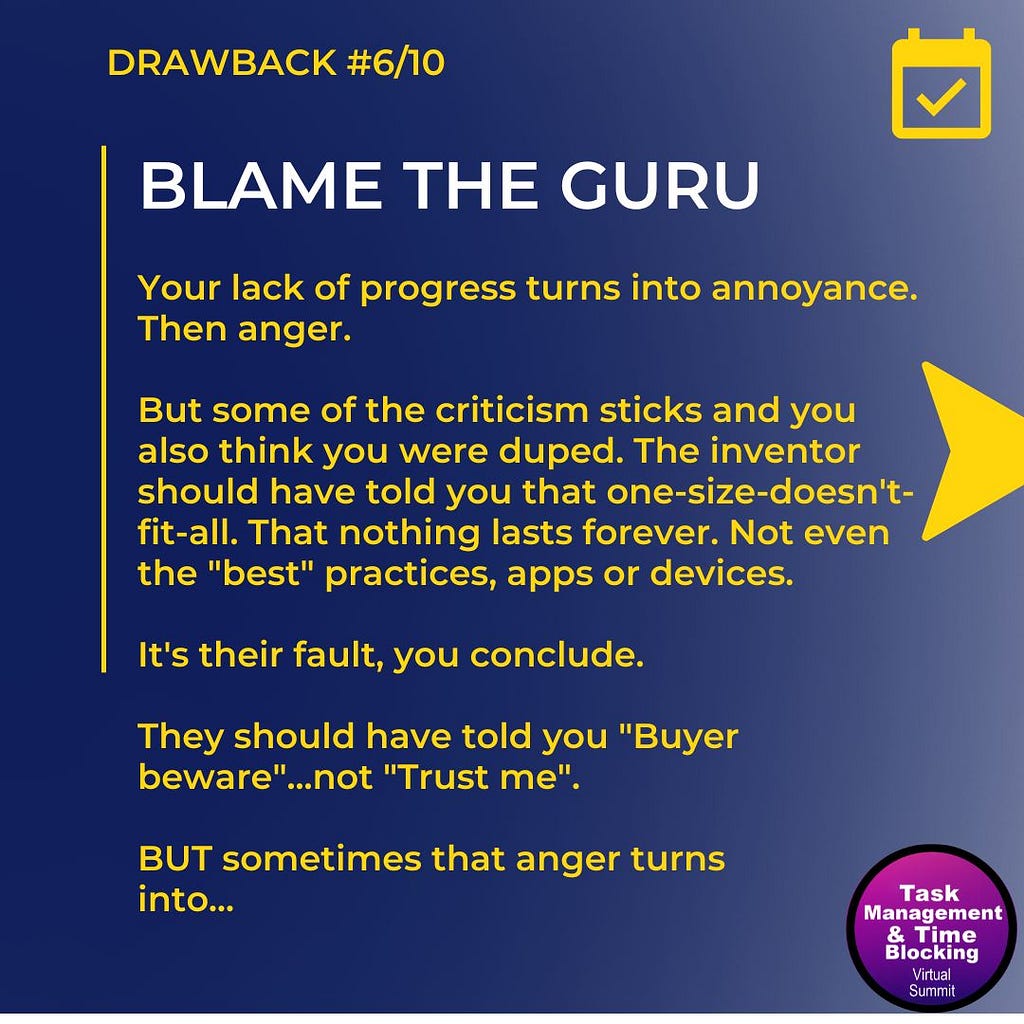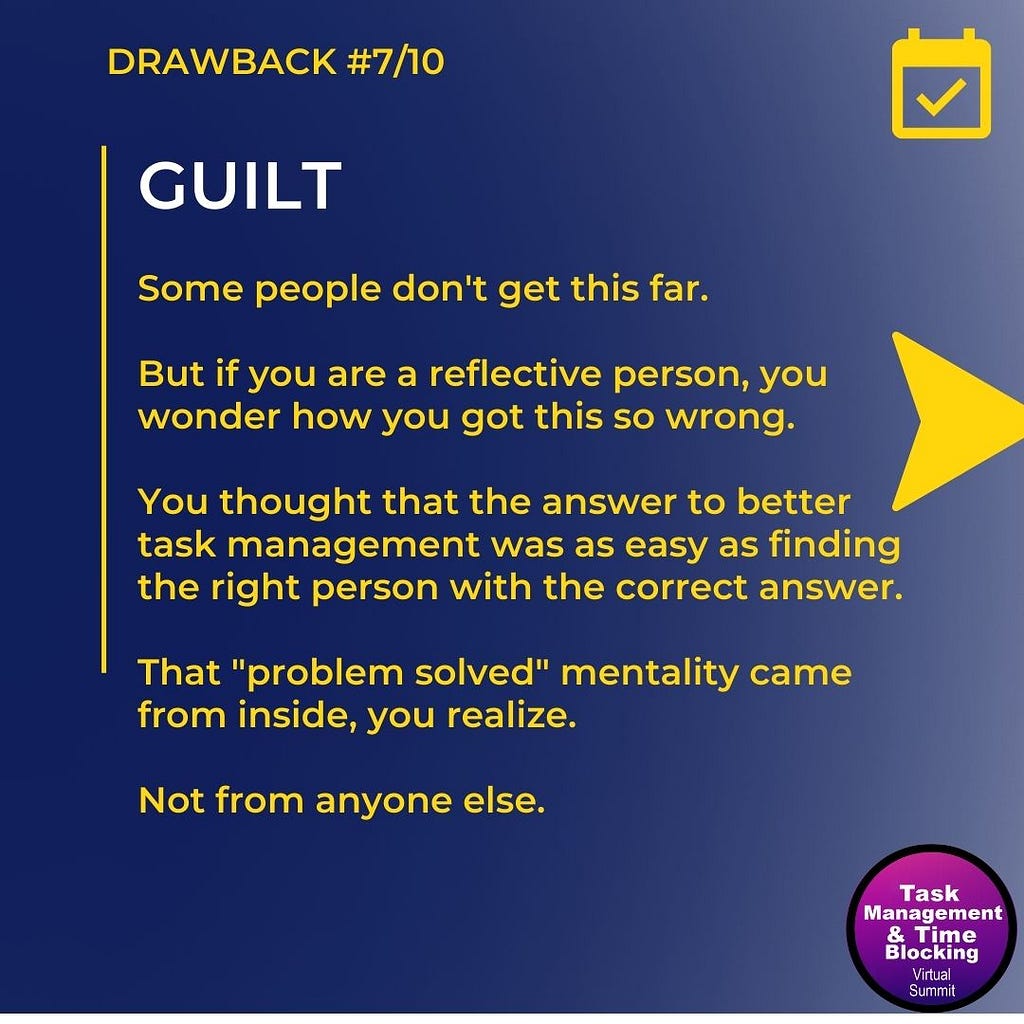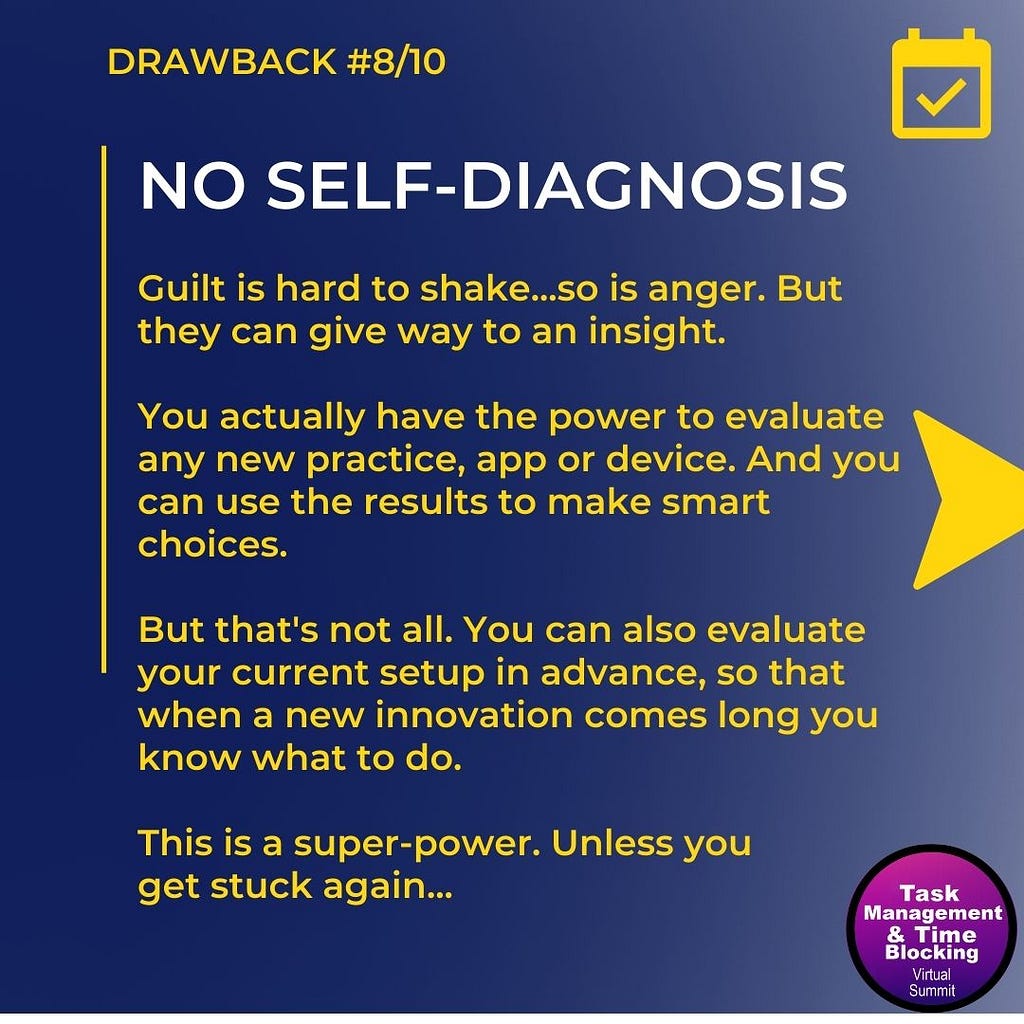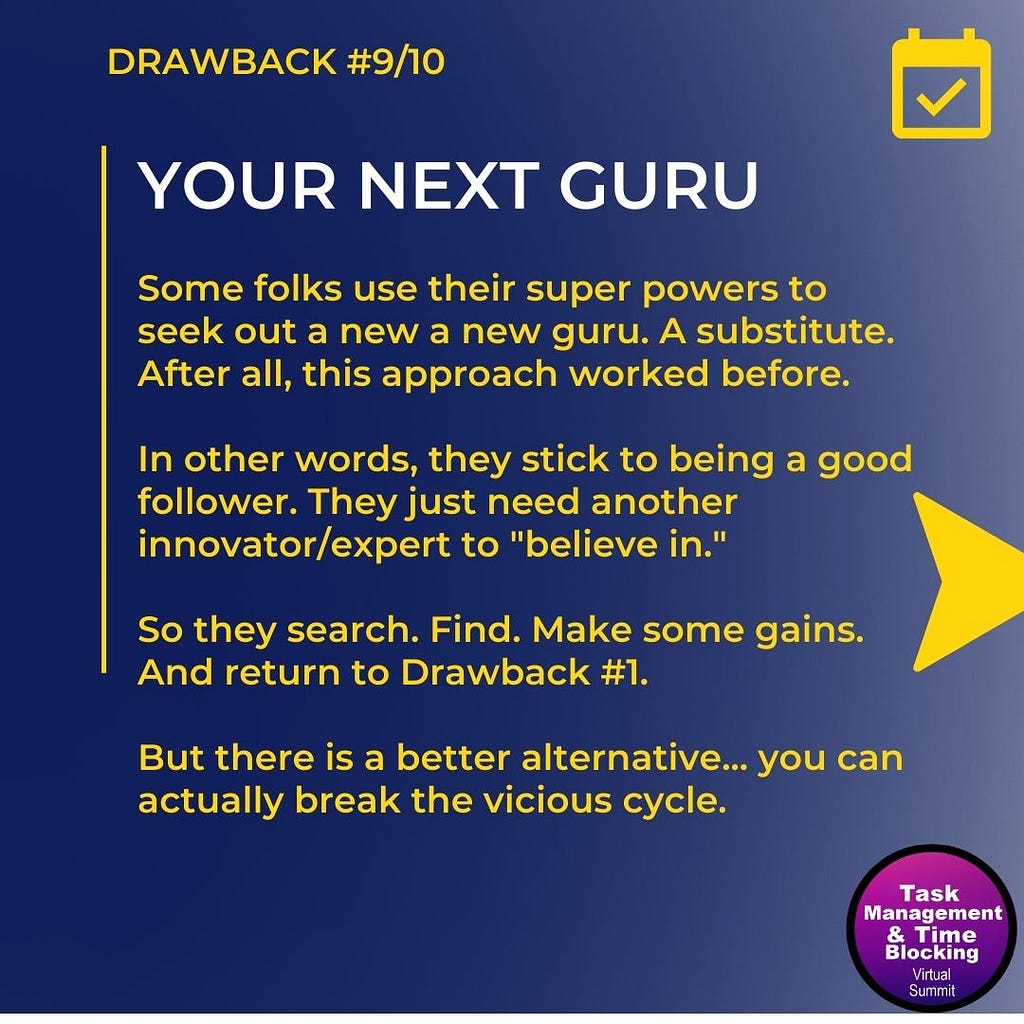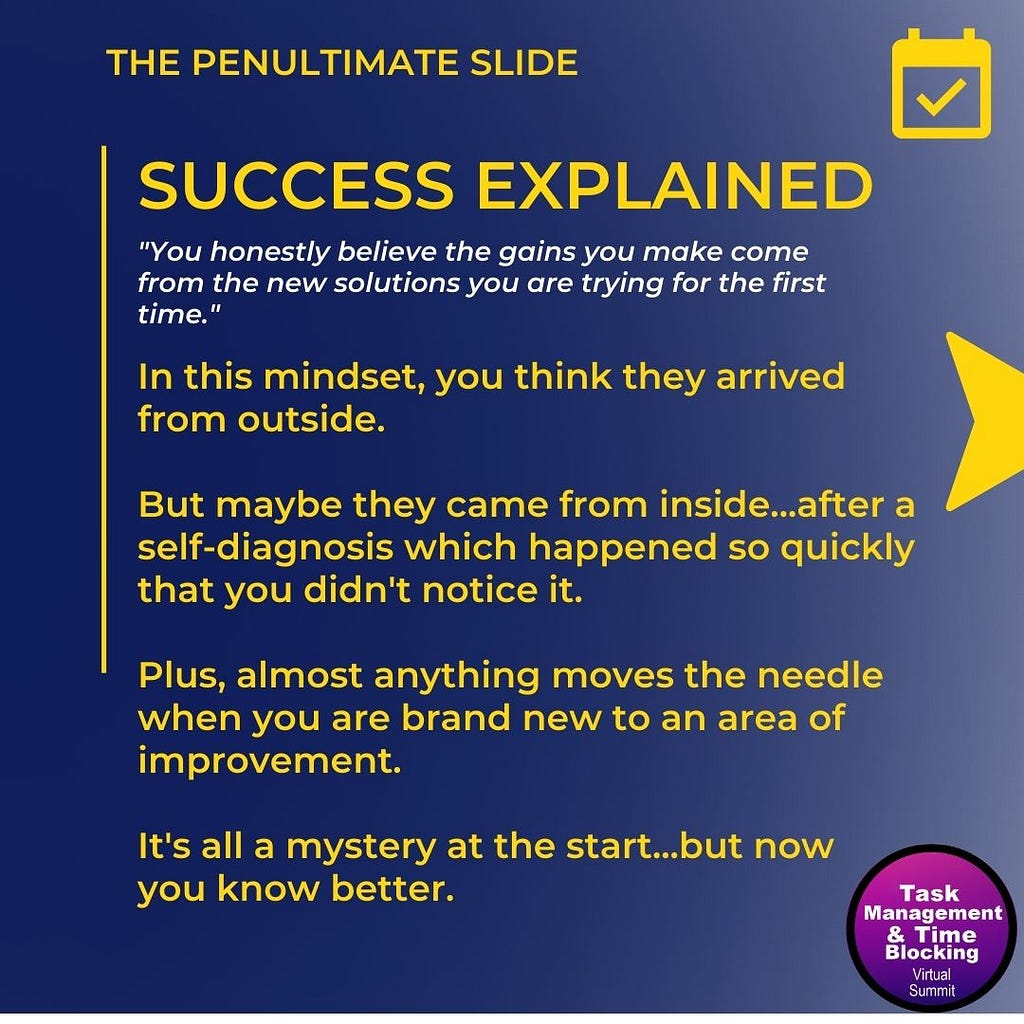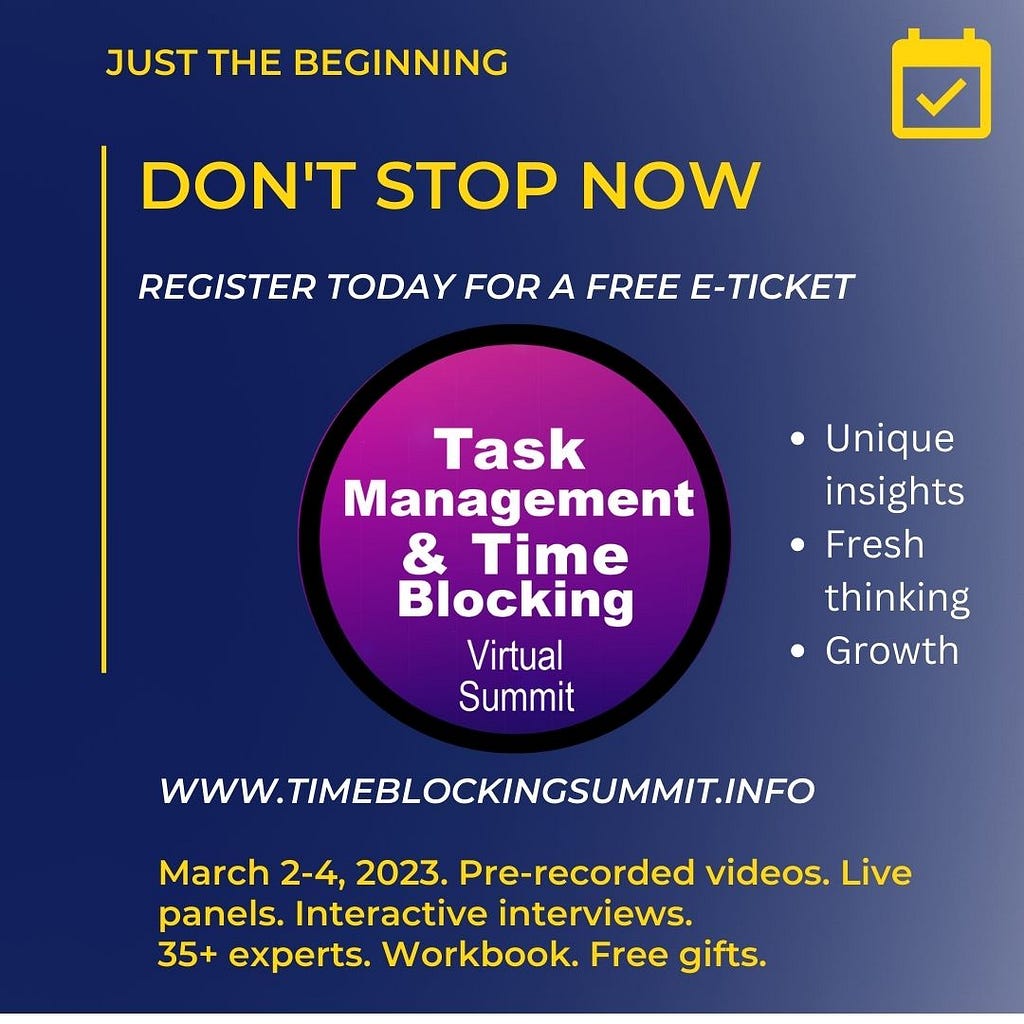New research emerges showing that keeping a specific schedule of what you plan to do each day in the future is better than other options.
The Problem:
For some time here at 2Time Labs I have highlighted the general problem of time management books that neither cite relevant research nor update their recommendations based on the latest research. Many claim, even indirectly, to be “the final word” on the topic, refusing or ignoring the idea that something better will come along someday.
Such hubris harms learners who need to continually adapt their individual time management systems to life’s changing circumstances and technologies. Getting stuck on the skills described in any book or program isn’t really an option in today’s fast-changing world. Learners need an evergreen approach to building their skills – relentlessly absorbing the latest ideas, newest findings and best equipment, while discarding stale notions, obsolete tools and useless apps.

Despite the best intentions of some authors and program creators, this need stubbornly persists even as they do their best to build higher walls and deeper moats to prevent their followers from escaping.
One question that typifies the tussle between guru-driven recommendations and new research is the question of whether or not a learner should center one’s daily activities around a list or a schedule. There are two distinct schools of thought.
List’ers
The more traditional, older school argues that tasks belong on lists. A calendar should only be used to record “hard” appointments that involve other people, or deadlines with “major” consequences. As you may notice, this guideline is inexact, and most authors leave the definition of “hard” and “major” to the learner. Major proponents of this point of view include David Allen and Michael Linenberger.
Schedule’rs
The younger school argues that tasks belong on schedules, and lists should only be used to supplement a calendar. Once again, the guideline is inexact, with the choice being left to the learner. Major proponents of this point of view include Peter Bregman and Daniel Markovitz.
The two schools clash from time to time, with the most dogmatic claiming that success can only come through their virtuous point of view, implying that failure comes through the evil alternative.
Our Both/And Hypothesis
At 2Time Labs we believe that both approaches have merit. Some learners prefer lists and others prefer schedules. Beyond the issue of personal preference, we believe that each person needs to understand the options, and make a conscious choice about the one they plan to follow, and for how long.
For some time, however, we have also argued that Schedule’rs are able to manage a much larger number of tasks. These scheduling skills are harder to learn, and rely more on the newest technology, making the learning curve steeper. But they ultimately bring a significant benefit.
We therefore support both approaches, and focus instead on helping learners make informed choices.
The New Research
In the face of this debate emerges a new study: Consider It Done! Plan Making Can Eliminate the Cognitive Effects of Unfulfilled Goals by E.J. Masicampo and Roy F. Baumeister from Florida State University. They not only shed critical light on the argument between List’ers and Schedule’rs, but they also offer a bit of evidence that our Both/And hypothesis at 2Time Labs may be supported by some independent evidence.
Research Goals
The researchers started out with the following notion: “Unfulfilled goals persist in the mind… The standard assumption has been that such cognitive activation persists until the goal is fulfilled. However, we predicted that contributing to goal pursuit through plan making could satisfy the cognitive processes that usually promote goal pursuit.”
Their results were clear:
“Committing to a specific plan for a goal may therefore not only facilitate attainment of the goal but may also free cognitive resources for other pursuits. Once a plan is made, the drive to attain a goal is suspended-allowing goal-related cognitive activity to cease-and is resumed at the specified later time.”
In summary, creating a specific plan is superior to having no plan at all.
Some would argue that this isn’t enough to support either side, thinking that a list is a kind of plan. Their specific experiments clarify any confusion.
“In several studies, we activated unfulfilled goals and examined the extent to which these goals persisted in the mind, remaining active in memory and intruding upon subsequent tasks.”
“Our emphasis was on highly specific plans of action… we asked participants to commit to plans that specified how, when and where they would attain their goals.” They add “A specific plan is like a script that a person can follow mindlessly to completion.”
In other words, what they mean by plan-making is what we call “creating a Schedule” and not what we refer to as “compiling a List.” In their purest forms, schedules, and not lists, are used by learners to define when something needs to be done.
In particular, one study performed by the researchers (5B) focused on these differences as they were tested in three groups.
Group 1 – Participants in the unfulfilled task condition (group) reflected on one task they had to complete in the coming days. Those participants then listed multiple possible courses of action for completing the task, but they did not commit to using any one of them.
Group 2 – Participants in the plan condition (group), in contrast, reflected on a task they had to complete in the coming days and made a specific plan for how they would complete it.
Group 3 – Participants in the control condition (group) reflected on one task they had recently completed.
Their findings were:
“…participants in the plan group (Group 2) reported significantly fewer task-related thoughts than did participants in the unfulfilled task group (Group 1). (The study) replicated the elimination of intrusive thoughts about an unfulfilled task after a specific plan was made.”
In Conclusion they state:
“… the activation and interference effects abruptly ceased among the participants who formed plans for their unfulfilled goals.”
“Unfulfilled tasks made people’s mind wander… But participants who made a plan to get their personal tasks done were able to <perform> with less mind wandering.”
“It has been well documented that specific plans increase success, doing so in part by making goal pursuit more automatic. Once a detailed plan has been made, one no longer has to think about the goal to execute it. Apparently, a plan reduces the amount of thoughts and attention that are typically recruited in service of an unfulfilled goal. Thoughts of an incomplete goal will not interfere with current concerns so long as a plan has been made to see the goal through later on.”
It’s not hard to summarize that having a Schedule leads to a number of positive effects that having a list simply doesn’t produce. In these experiments, makers of a schedule were more productive than those who didn’t make schedules.
Support for the Both/And Hypothesis
In the Implications section of the paper the authors state:
“In most cases, the unconscious achieves self-organization quite well, including in the realm of goal pursuit. (This paper) however, suggests that interrupted goals represent a special case that exceeds the self-organizing capacity of the unconscious. Only when a conscious plan is made does an unfulfilled goal seem to settle into a stable state. Until then, the disturbance from unfulfilled goals seems to persist in the mind, intruding into one’s thoughts and interfering with other tasks.”
In other words, there is a tipping point. When there are too many tasks, the unconscious mind needs a conscious plan or else there is a decline in productivity. As I implied before, their “conscious plan” is what we call a “schedule.”
The Bottom Line
From my perspective here at 2Time Labs there needn’t be two separate camps, as I implied in our Both/And Hypothesis. The problem has been created by authors who go too far and claim that their approach is not only useful, but uniquely correct. In their zeal, they over-reach and state general conclusions that are unfounded in fact, and based on little more than individual experience and/or conjecture. When they make such statements their followers are lured into thinking that their way is the only true way, leading to a fundamentalist mindset that blocks open learning.
In my book, Bill’s Im-Perfect Time Management Adventure I created a character, Vernon Vaz, who is taken over by this mindset and the trouble it causes. The tension between Vernon and Bill is one that is taking place in workplaces around the world and the lack of research in time management keeps it going for far longer than it should.
Thankfully, there is research such as “Consider It Done” that sheds the kind of light that brings data to dogma, and can help us all get past the tension and towards solutions.
P.S. I did a series of posts and videos on the results of Dr. Dezhi Wu’s research that also indicated the value of individual schedule building.
Mission Control Productivity, FranklinCovey, GTD and Getting Things Done are registered trademarks of the David Allen Company (davidco.com.) 2Time is not affiliated with or endorsed by the David Allen Company, Mission Control Productivity or FranklinCovey.
